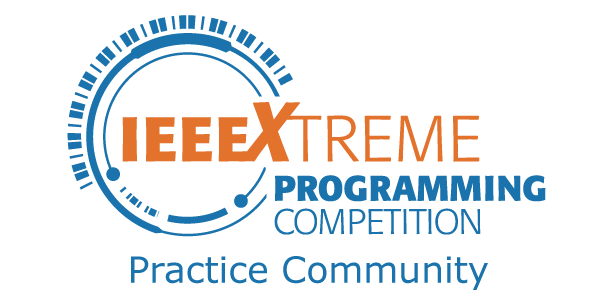IEEEXtreme 13.0: Registration is open!

Dear student,
Registration for the IEEEXtreme Programming Competition is now open!
What is the IEEEXtreme?
IEEEXtreme is a global challenge in which teams of IEEE Student members – advised and proctored by an IEEE member, and often supported by an IEEE Student Branch – compete in a 24-hour time span against each other to solve a set of programming problems.
Who can compete?
Teams of up to three collegiate students who are current IEEE student members.
There is no limit for local colleges and universities as they can form multiple teams.
What could I win?
- Fame: Unlimited bragging rights and an item for your resume.
- Fortune: Among other great prizes, the Grand Prize is a trip to the IEEE conference of your choice, anywhere in the world.
All active participants in the competition will receive a digital certificate and a digital gift bundle.
How about the date and time?
IEEEXtreme 13.0 will take place on October 19, 2019. It will start on 00:00 UTC for all contestants around the globe and it will end 24 hours later.
Since it is a global competition, where is the location?
As IEEEXtreme is a virtual online competition, a physical location, or venue, must be identified for participants to use during the 24-hour competition.
Venues can be in an IEEE Student Branch office, a college lab, or another location on campus. It must be a place that participants can use for the 24 hours during the competition, it should be equipped with at least one computer, and some type of connection to the internet must be provided.
I’ve heard the contest is pretty difficult. I’m in my first year of university and don’t think I’m good enough. Should I participate?
Yes. The competition is all about the experience. IEEEXtreme is a lot of fun, and will help you face real-world problems that you may not see during college. Furthermore, the competition includes questions from various difficulties, from easy/novice to expert levels.
Get your team together early and register today. Together you can prepare for the competition by visiting our Practice Community.
In 2018 the IEEEXtreme hosted 9,500 participants from 76 countries!
Represent your school and your country in this year’s competition. Help us break the 10,000 participants benchmark and
REGISTER NOW!
Good luck!
The IEEEXtreme Team
For more information and to connect with the IEEEXtreme Team visit:
Void where prohibited. Those residing in OFAC-embargoed countries may compete, but are not eligible for monetary awards.





